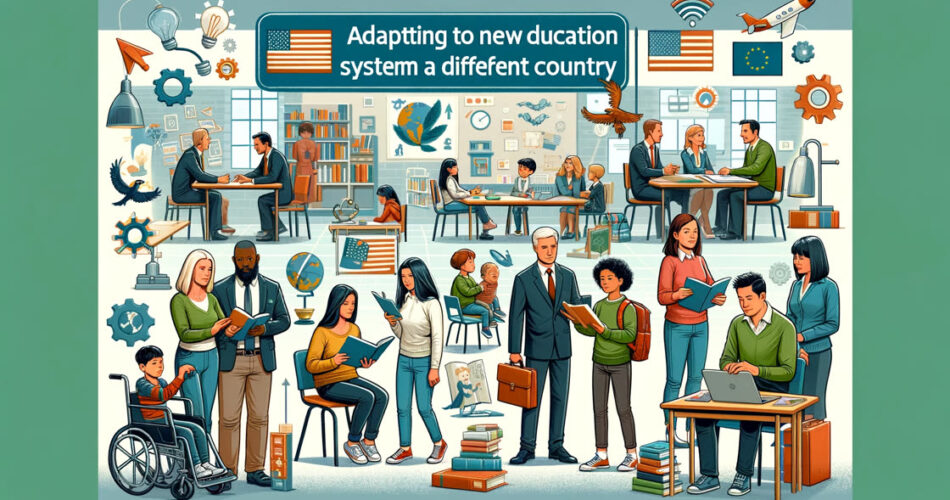Moving to a new country often involves adjusting to a different education system, which can be challenging for students of all ages. Educational structures, teaching methods, and academic expectations can vary significantly from one country to another. Successfully adapting to these differences is key to a fruitful educational experience abroad. Here’s a comprehensive guide on how to adapt and succeed in a new educational system.
Understanding the New Education System
Research the System: Before moving, research the education system of your new country. Understand the grading system, the structure of the academic year, and the curriculum standards.
Identify Key Differences: Note the main differences between the education system in your home country and the new one. This could include teaching styles, student-teacher relationships, and examination methods.

Preparing Academically
Brush Up on Essential Skills: If the new system focuses more on certain skills (like essay writing or analytical thinking), work on these areas before the move.
Language Proficiency: If the medium of instruction is different, work on improving your language skills. This is crucial for understanding lessons and expressing your thoughts clearly.
Engaging in the Learning Process
Participate Actively: Engage actively in classes. Participation can help you better understand the material and integrate into the school culture.
Seek Clarification: Don’t hesitate to ask teachers for clarification if you’re struggling to understand certain concepts or expectations.
Adjusting to New Teaching Styles
Adapt to Different Pedagogies: Be open to different teaching methods. Some countries may focus more on group work and discussions, while others may emphasize lectures and individual assignments.
Develop Independent Study Habits: In some education systems, there is a greater emphasis on independent study. Develop habits that allow you to study effectively on your own.

Building a Support Network
Connect with Other Students: Build relationships with your peers. They can be a source of support and provide insights into adapting to the new system.
Utilize School Resources: Many schools offer resources such as counseling services, tutoring, or study groups that can help you adjust.
Managing Stress and Expectations
Stay Organized: Keep track of assignments, exams, and deadlines. Staying organized can help reduce stress.
Manage Expectations: Be patient with yourself as you adapt to the new system. It’s normal to face challenges in the beginning.
Seeking Help When Needed
Ask for Assistance: If you’re struggling, don’t hesitate to seek help. This could be from teachers, school counselors, or external education professionals.
Be Open to Different Learning Aids: Explore different learning aids and resources that can supplement your studies.
In conclusion, adapting to a new education system in a different country involves understanding the new system, preparing academically, engaging in the learning process, adjusting to new teaching styles, building a support network, managing stress and expectations, and seeking help when needed. Embracing the challenges and differences with an open mind and proactive approach can lead to a rewarding and enriching educational experience. Remember, adapting to a new educational system is a journey of growth and learning.
